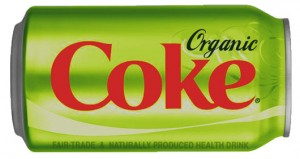Irrefutably, the phrases like “gluten free” , “zero trans fat”, “organic” and “no MSG added” have widened up a new target of consumers in the market. To most who are really concerned about eating right, they might be willing to fork out extra money in buying groceries. In most instances, the value that the consumers put on healthy products has also led them to devote more time in reading and analyzing the labels in each of the products. Organic food is often being differentiated with stickers or even being completely isolated in another section at most the stores. Without noticing, organic food has attracted a large number of citizens especially in the developed nation.
Perceptions vs Facts
A discovery made by Stanford University suggested that organic products “have no significant advantage over conventional foods”. http://med.stanford.edu/ism/2012/september/organic.html
However, kotosomoy’s post highlights from a more social and psychological perspective. From a study by Cornell University’s Food and Brand Lab researchers Lee, Shimizu, Kniffin and Wansink has shown that organic labels bias consumers perceptions making them to think that a food is healthier, through what is known as the ‘health halo effect’.
http://kotosomoy.blogspot.ca/2013/04/organic-labels-bias-consumers.html
Influence of the brand
In addition, the result indicates that organic label can influence much more than health views: perceptions of taste, calories and value can be significantly altered when a food is labeled “organic”. Now, let’s put aside the health benefits of organic food. To some, buying organic food is seen as a way to help the environment and the farmer. Undeniably, the farmers are now able to produce less at a higher price.
Are we really helping the world by doing so? Organic farming causes the production to decrease and this is actually inconvenient to the poorer country. Ironically, the majority of the organic products is owned by giant corporations like Bear Naked, Kashi, Morningstar Farms, Kellogg, Naked juice and Odwalla.

